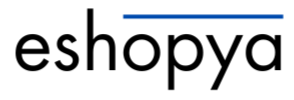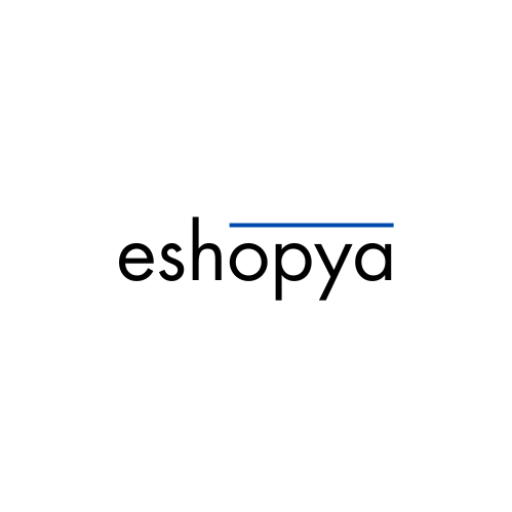Ecommerce
Top 10 E-Commerce Platforms for 2025: Which One is Right for Your Business?
The e-commerce industry is booming, and choosing the right platform for your online store is one of the most critical decisions you’ll make as a business owner. With so many options available, it can be overwhelming to determine which platform best suits your needs. In this comprehensive guide, we’ll explore the top 10 e-commerce platforms for 2025, highlighting their features, pros, cons, and ideal use cases. Whether you’re a small business owner, a growing brand, or an enterprise-level company, this article will help you make an informed decision.
1. Shopify
Overview
Shopify is one of the most popular e-commerce platforms, powering over 4 million websites worldwide. It’s known for its ease of use, scalability, and robust feature set, making it a top choice for businesses of all sizes.
Key Features
- User-Friendly Interface: No coding skills required.
- App Store: Over 8,000 apps to extend functionality.
- Themes: 100+ professionally designed themes.
- Payment Options: Supports multiple payment gateways, including Shopify Payments.
- SEO Tools: Built-in SEO features to improve search engine rankings.
Pros
- Easy to set up and manage.
- Excellent customer support.
- Scalable for businesses of all sizes.
- Mobile-friendly and responsive designs.
Cons
- Transaction fees for using third-party payment gateways.
- Limited customization without coding.
Ideal For
- Small to medium-sized businesses.
- Entrepreneurs looking for an all-in-one solution.
- Brands that want to scale quickly.
2. WooCommerce
Overview
WooCommerce is a free, open-source plugin for WordPress, making it a favorite among businesses that already use WordPress for their websites. It’s highly customizable and offers endless possibilities for growth.
Key Features
- Flexibility: Fully customizable with plugins and themes.
- SEO-Friendly: Integrates seamlessly with WordPress SEO tools.
- Payment Options: Supports multiple payment gateways.
- Community Support: Large community of developers and users.
Pros
- Free to use (though hosting and extensions may cost extra).
- Highly customizable.
- Ideal for content-heavy websites.
- No transaction fees.
Cons
- Requires WordPress hosting.
- May need technical expertise for advanced customization.
Ideal For
- WordPress users.
- Businesses that want full control over their website.
- Content-driven e-commerce sites.
3. BigCommerce
Overview
BigCommerce is a powerful, enterprise-grade platform that offers robust features for growing businesses. It’s known for its scalability and built-in tools, making it a strong competitor to Shopify.
Key Features
- Built-In Features: No need for additional apps for basic functionality.
- Multi-Channel Selling: Integrates with Amazon, eBay, and social media platforms.
- SEO Tools: Advanced SEO features for better visibility.
- Scalability: Handles high traffic and large product catalogs.
Pros
- No transaction fees.
- Excellent for scaling businesses.
- Strong SEO capabilities.
- Multi-channel selling options.
Cons
- Higher learning curve compared to Shopify.
- Limited free themes.
Ideal For
- Medium to large businesses.
- Brands looking to scale quickly.
- Businesses focused on SEO and multi-channel selling.
4. Wix eCommerce
Overview
Wix is a beginner-friendly website builder that also offers e-commerce functionality. It’s ideal for small businesses and entrepreneurs who want a simple, drag-and-drop solution.
Key Features
- Drag-and-Drop Builder: Easy to use, no coding required.
- Themes: 500+ templates, including e-commerce-specific designs.
- App Market: Extend functionality with apps.
- Mobile Optimization: Fully responsive designs.
Pros
- Extremely user-friendly.
- Affordable pricing plans.
- Great for small businesses and startups.
Cons
- Limited scalability for larger businesses.
- Fewer advanced e-commerce features compared to competitors.
Ideal For
- Small businesses and startups.
- Entrepreneurs with limited technical skills.
- Businesses with simple product catalogs.
5. Squarespace
Overview
Squarespace is known for its stunning, design-focused templates, making it a favorite among creative businesses. It’s a great choice for brands that prioritize aesthetics.
Key Features
- Design Templates: Beautiful, professionally designed themes.
- All-in-One Platform: Hosting, domain, and e-commerce tools included.
- Blogging Tools: Built-in blogging features for content marketing.
- Mobile Optimization: Fully responsive designs.
Pros
- Stunning templates.
- Easy to use.
- Great for content-driven businesses.
Cons
- Limited e-commerce features compared to Shopify or BigCommerce.
- Higher transaction fees.
Ideal For
- Creative businesses (artists, photographers, designers).
- Small to medium-sized businesses.
- Brands that prioritize design and aesthetics.
6. Magento (Adobe Commerce)
Overview
Magento, now part of Adobe Commerce, is a powerful, open-source platform designed for large enterprises. It offers unparalleled customization and scalability.
Key Features
- Customization: Fully customizable with a wide range of extensions.
- Scalability: Handles large product catalogs and high traffic.
- Multi-Store Management: Manage multiple stores from one dashboard.
- SEO Tools: Advanced SEO features.
Pros
- Highly scalable.
- Ideal for large enterprises.
- Strong community support.
Cons
- Expensive to set up and maintain.
- Requires technical expertise.
Ideal For
- Large enterprises.
- Businesses with complex needs.
- Brands that require high levels of customization.
7. PrestaShop
Overview
PrestaShop is a free, open-source e-commerce platform that’s popular in Europe. It’s highly customizable and offers a wide range of features.
Key Features
- Customization: Over 5,000 modules and themes.
- Multi-Store Management: Manage multiple stores from one dashboard.
- SEO Tools: Built-in SEO features.
- Community Support: Large, active community.
Pros
- Free to use.
- Highly customizable.
- Ideal for international businesses.
Cons
- Requires technical expertise.
- Hosting and extensions may cost extra.
Ideal For
- Small to medium-sized businesses.
- International brands.
- Businesses with technical expertise.
8. OpenCart
Overview
OpenCart is another open-source e-commerce platform that’s known for its simplicity and ease of use. It’s a great option for small to medium-sized businesses.
Key Features
- User-Friendly Interface: Easy to set up and manage.
- Extensions: Over 13,000 modules and themes.
- Multi-Store Management: Manage multiple stores from one dashboard.
- SEO Tools: Built-in SEO features.
Pros
- Free to use.
- Lightweight and fast.
- Easy to customize.
Cons
- Limited support compared to paid platforms.
- Requires technical expertise for advanced customization.
Ideal For
- Small to medium-sized businesses.
- Entrepreneurs with technical skills.
- Businesses looking for a cost-effective solution.
9. Volusion
Overview
Volusion is an all-in-one e-commerce platform that’s been around for over 20 years. It’s known for its simplicity and affordability.
Key Features
- User-Friendly Interface: Easy to set up and manage.
- Built-In Features: No need for additional apps for basic functionality.
- Themes: Professionally designed templates.
- SEO Tools: Built-in SEO features.
Pros
- Affordable pricing plans.
- Easy to use.
- Great for small businesses.
Cons
- Limited customization options.
- Transaction fees on lower-tier plans.
Ideal For
- Small businesses and startups.
- Entrepreneurs with limited budgets.
- Businesses with simple product catalogs.
10. Ecwid
Overview
Ecwid is a unique e-commerce solution that allows you to add a store to any existing website, social media page, or marketplace. It’s ideal for businesses that want to sell across multiple channels.
Key Features
- Multi-Channel Selling: Sell on your website, social media, and marketplaces.
- Easy Integration: Add a store to any website.
- Mobile Optimization: Fully responsive designs.
- Free Plan: Available for small stores.
Pros
- Easy to integrate.
- Great for multi-channel selling.
- Affordable pricing plans.
Cons
- Limited customization options.
- Fewer features compared to standalone platforms.
Ideal For
- Small businesses.
- Businesses with existing websites.
- Brands focused on multi-channel selling.
How to Choose the Right E-Commerce Platform
With so many options available, how do you choose the right platform for your business? Here are some factors to consider:
1. Business Size and Goals
- Small businesses may prefer user-friendly platforms like Shopify or Wix.
- Large enterprises may need scalable solutions like Magento or BigCommerce.
2. Budget
- Consider upfront costs, transaction fees, and ongoing expenses.
- Open-source platforms like WooCommerce and PrestaShop are cost-effective but may require technical expertise.
3. Technical Expertise
- If you’re not tech-savvy, opt for platforms like Shopify or Wix.
- For advanced customization, consider WooCommerce or Magento.
4. Features and Scalability
- Evaluate the features you need, such as SEO tools, multi-channel selling, and inventory management.
- Choose a platform that can grow with your business.
5. Customer Support
- Look for platforms with reliable customer support, especially if you’re new to e-commerce.
Conclusion
Choosing the right e-commerce platform is a crucial step in building a successful online store. Each platform has its strengths and weaknesses, and the best choice depends on your business needs, budget, and technical expertise. Whether you’re a small business owner looking for an easy-to-use solution or a large enterprise in need of advanced customization, there’s a platform on this list that’s perfect for you.
By carefully evaluating your options and considering factors like scalability, features, and budget, you can select the platform that will help you achieve your e-commerce goals and set your business up for long-term success. Start exploring these top e-commerce platforms today and take the first step toward building a thriving online store in 2025!


